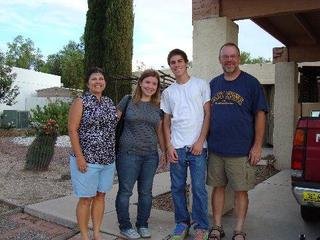Most people who know me know I am a huge Bob Dylan fan. Even though I am old enough to have been around during a big part of his career, I really became interested in the 90's while I lived in West Virginia. A guy in my church told me about Bob's Christian albums, and made me some tapes. I was hooked. Now I am a fan of all things Bob Dylan. For the record, my favorite CD is Time Out of Mind from the late 90's. The article from an email from Relevant below is very revealing.
The initial shock of hearing that Bob Dylan—Bob Dylan!—professed to have a personal relationship with Jesus was followed by utter confusion. How could this be? There seemed to be no sane explanation for this bewildering turn of events. Some cynics charged that Dylan had been brainwashed, others argued that he had simply sold out; the popularity of contemporary Christian music was on the rise, and he had decided to cash in on the booming genre.
Most baffling of all, though, was the seeming contradiction between Dylan’s Jewish ethnicity and his newfound passion for Jesus. Many in the Jewish community felt that Dylan had betrayed his heritage; others apparently unaware of any Jewish believers in Jesus found the whole situation incomprehensible: How could a Jew believe in Jesus?
But what about Dylan’s spiritual leanings prior to 1979? Before his experience with Jesus there were numerous indications that he was familiar with the teachings of the New Testament; he hadn’t exactly been silent about the person of Jesus.
Having grown up in a Jewish home, a young Bob Dylan would have had more than a passing acquaintance with the Hebrew language and Scriptures. Perhaps equally—or even more—influential was the gospel music he heard on the radio late at night, when from his home in Minnesota he could pull in a signal from far-away Shreveport, La., a thousand miles to the south.
Dylan still remembers when he was 12 and first heard the legendary gospel group the Staple Singers. “At midnight the gospel stuff would start,” he said.
As a 22-year-old in 1963, Dylan referred to Jesus in his lyrical masterpieces “Masters of War” and “With God on Our Side.” The former included an overstatement that had Jesus drawing a line on His forgiveness; the latter asked a question loaded with heavy implications: Did Judas Iscariot have God on his side? You’ll have to decide that one for yourself, Dylan wrote. Regardless of the answer, one thing was certain: If the pop genre had a coffin, then as a lyricist Dylan had certainly just driven a few nails into it.
Despite these and other biblical allusions in his early lyrics, on more than one occasion Dylan flatly denied having a personal faith. Claiming to have tried out several different religions, Dylan said he had no religion of his own. He believed individuals and churches interpreted the Bible to suit their own needs. God is all around us, he said, but people don’t respect or recognize Him; after all, look what they did to Jesus when He walked on the earth, he pointed out.
Dylan may not have claimed a personal faith, but his own words indicate that God was very much on his mind, just as the Bible was very much a part of his life.
So obvious was the spiritual content of Dylan’s epic album Highway 61 Revisited, released in 1965 when the singer was 24, that journalist Michael Corcoran would later describe the lyrics as a translation of the Bible in street terms.
It didn’t take long before yet another role was assigned to the groundbreaking songwriter—that of prophet. While Dylan consistently shunned this role, it became increasingly clear that he couldn’t escape it. Gifted with extraordinary spiritual and moral insight, Dylan had become the spokesman for an entire disenchanted, disillusioned generation. Whether he liked it or not, he fit the prophetic bill.
Without question, Dylan’s upbringing, particularly his Jewish heritage, had significantly shaped who he is today. And clearly, late-night radio was largely responsible for shaping Dylan’s life as a musician, poet and spiritual seeker. The rhythms of the music, the cadence of the words, the passion of the stories all coalesced into a brilliant mind and soul centered on the spiritual nature of every aspect of life.
Beyond that, it’s anyone’s guess as to what other factors made Bob Dylan the man he is today—which, in essence, is the same man he has always been. The early influences that created in him an independent nature and the determination to live an authentic life are a part of the mystery that is Bob Dylan. Like few other entertainers, Dylan has resisted—or perhaps more accurately, completely ignored—all the pointless efforts his record company, fans and critics have made to get him to conform to their image of who he should be. Over a period of 40 years in the spotlight, Dylan has remained faithful to who he is and what he believes to be true.
Dylan doesn’t fit any of the religious molds that people have created, simply because Dylan’s personal expression of faith remains larger than any mold mere men ever could create. Meanwhile, as outside observers continue their efforts to pigeonhole him, Bob Dylan continues to sit at the feet of the Master on his personal hillside, listening attentively, questioning respectively, analyzing thoughtfully. Yes, this just could be where Dylan has been sitting all along.
This excerpt from Restless Pilgrim (RELEVANT) by Scott Marshall with Marcia Ford is featured in the current issue of RELEVANT.
: Scott M. Marshall With Marcia Forda
Scott M. Marshall with Marcia Ford authored
(RELEVANT).
